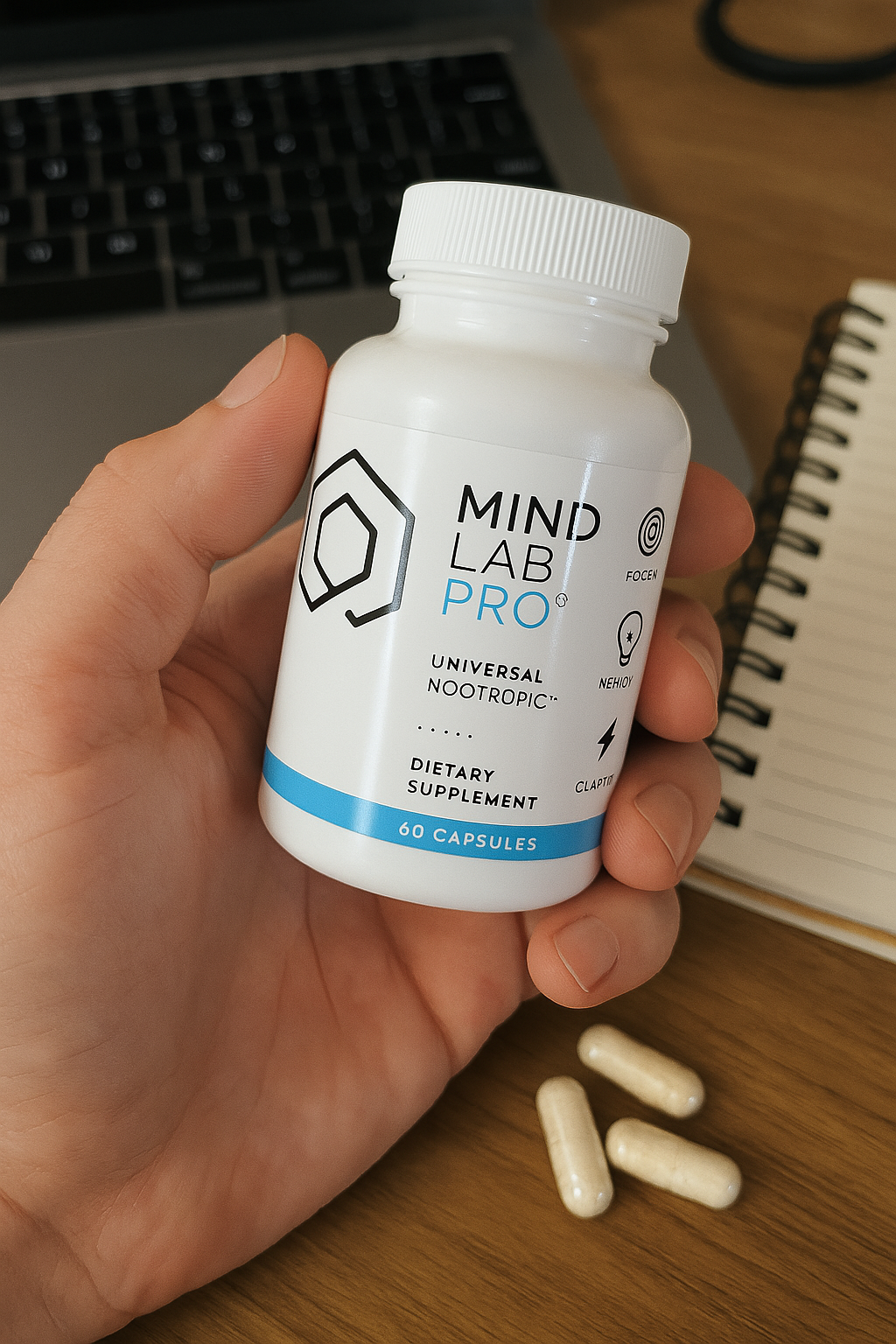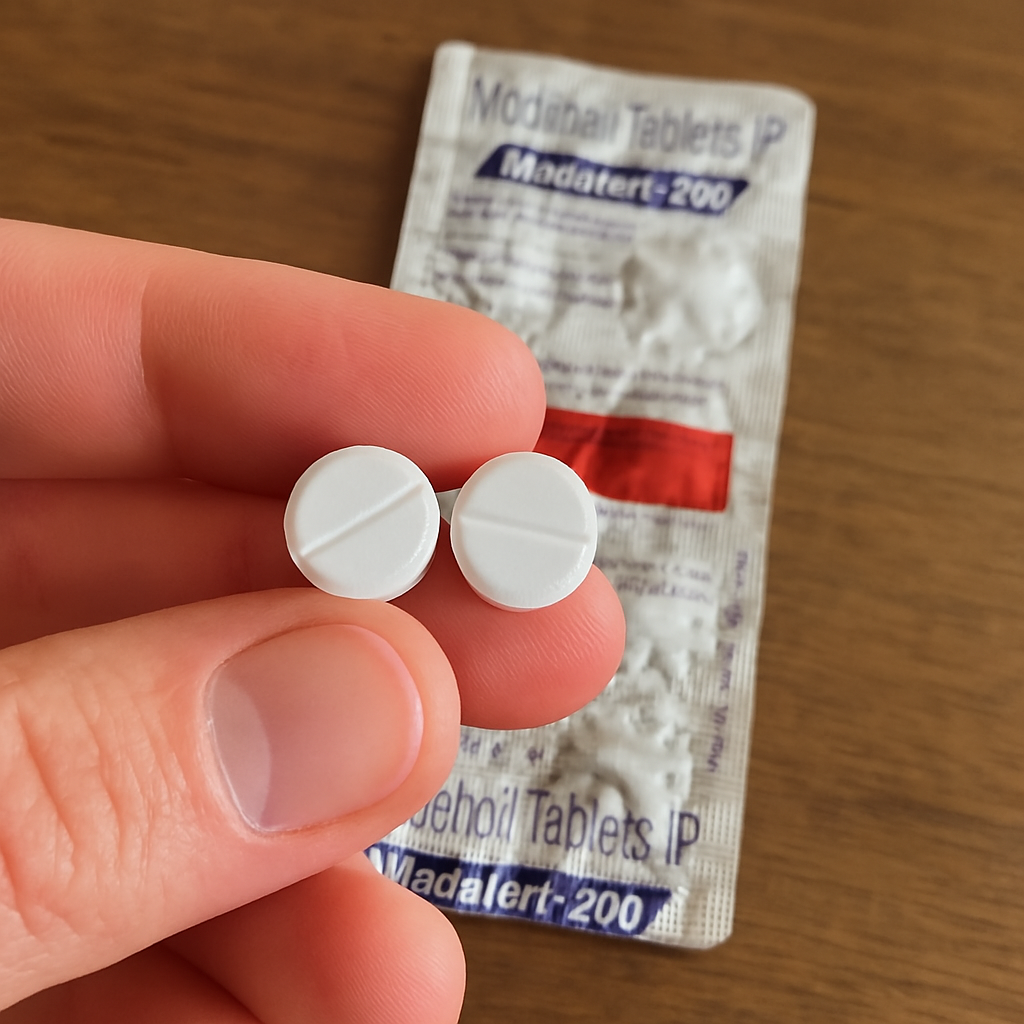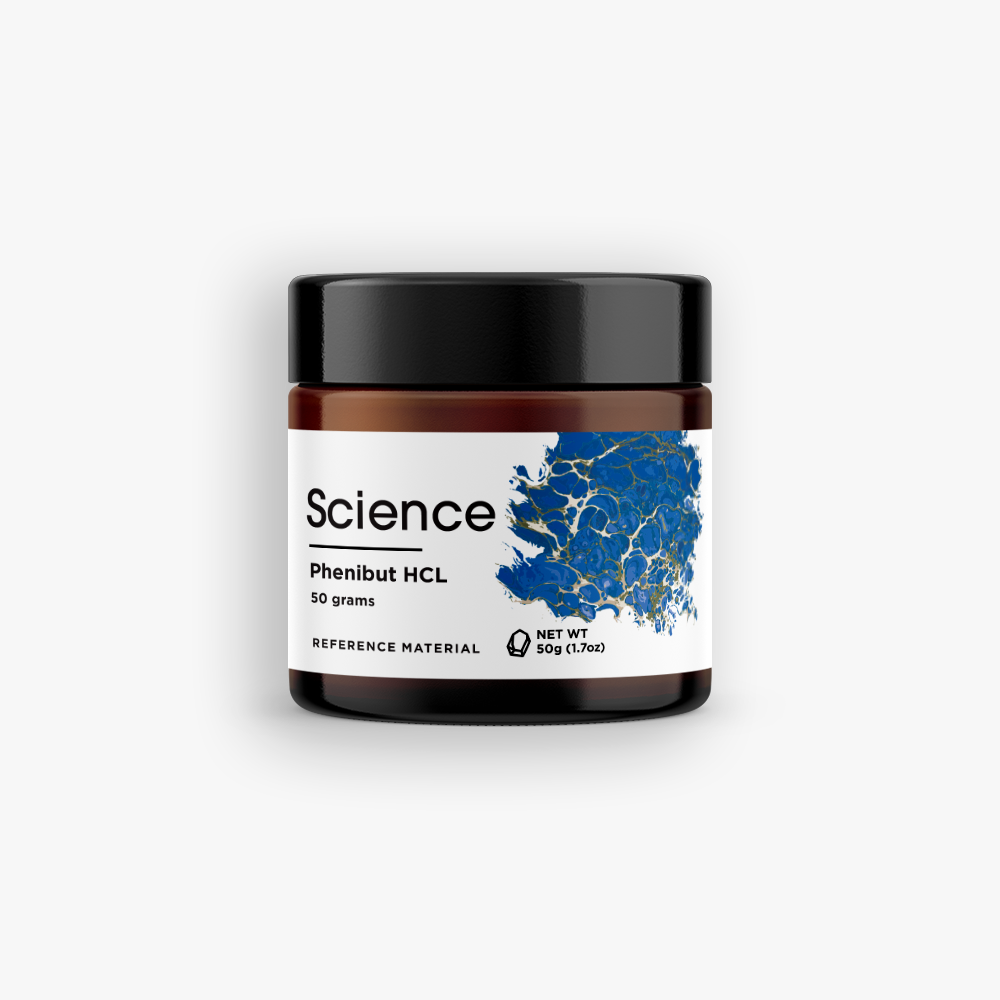January 15, 2025
Vyvamind Nootropic Review (My Experience So Far)

Jen Masson
Nutritionist & Brain Health Specialist
A comprehensive analysis of the Vyvamind nootropic supplement, including ingredients, effectiveness for focus and concentration, potential side effects, and my personal results.
Introduction
Cognitive enhancement is a rapidly growing field, with nootropics becoming increasingly popular among professionals, students, and anyone seeking to optimize their mental performance. Vyvamind is marketed as a "neurostimulant" designed to provide focus, motivation, and cognitive clarity without the severe side effects associated with prescription stimulants. [1]
As a nutrition specialist with a focus on brain health, I've tested numerous nootropic formulations. This review documents my experience with Vyvamind over a 60-day testing period, analyzing its effects on various cognitive domains.
What is Vyvamind?
Vyvamind is a nootropic supplement formulated to enhance mental performance across multiple cognitive domains. The manufacturer positions it as a "natural alternative" to prescription medications like Adderall or Modafinil, albeit with less potency but also fewer side effects.
Ingredient Analysis
Vyvamind contains a relatively simple formula with six active ingredients:
- L-Tyrosine (300mg) - An amino acid that serves as a precursor to dopamine, potentially improving cognitive performance under stress.
- Citicoline (200mg) - A compound that increases acetylcholine levels and supports brain cell membrane integrity. [3]
- L-Theanine (150mg) - An amino acid found in tea that promotes relaxation without drowsiness, often paired with caffeine for balanced energy. [2]
- Caffeine Anhydrous (75mg) - Roughly equivalent to a small cup of coffee, providing mental alertness and focus.
- Vitamin B6 (2.5mg) - Supports various aspects of brain function and neurotransmitter synthesis.
- Vitamin B12 (50mcg) - Essential for nerve function and energy metabolism.
My 60-Day Testing Protocol
To assess Vyvamind's effects systematically, I designed a testing protocol that included:
- Two weeks baseline without any supplements
- Eight weeks of daily Vyvamind supplementation
- Weekly cognitive assessments
- Daily journaling of subjective effects
- Controlled diet and exercise routine
Cognitive Performance Results
After 60 days of consistent use, here's how Vyvamind affected different aspects of my cognitive function:
| Cognitive Domain | Rating (1-10) | Notes |
|---|---|---|
| Focus/Attention | 8 | Significant improvement in sustained attention |
| Mental Energy | 7.5 | Consistent alertness without jitters |
| Working Memory | 6.5 | Moderate improvements in information processing |
| Mood | 6 | Subtle enhancement in motivation and outlook |
| Anxiety Reduction | 5.5 | Mild anxiolytic effects, likely from L-theanine |
Side Effects and Tolerability
The side effect profile was remarkably mild compared to other nootropics I've tested:
- Days 1-3: Slight increase in heart rate (10-15 BPM above baseline)
- Days 4-14: Occasional mild headache in the afternoon
- Days 15+: No noticeable side effects
The lack of significant side effects is likely due to the moderate caffeine dosage balanced with L-theanine, which is known to smooth out caffeine's potentially jittery effects. [2]
Cost-Benefit Analysis
At approximately $69.99 for a one-month supply, Vyvamind sits in the mid-to-high price range for nootropic supplements. Based on my experience, the value proposition depends greatly on your specific cognitive needs and budget constraints.
Frequently Asked Questions About Vyvamind
How does Vyvamind compare to prescription stimulants?
Vyvamind is not a prescription stimulant and contains only dietary supplement ingredients. Unlike medications like Adderall (amphetamine salts) or Modafinil that act primarily as CNS stimulants via direct dopaminergic activity, Vyvamind uses milder compounds like citicoline and tyrosine to support neurotransmitter synthesis and brain energy metabolism. The effects are less intense but also carry a lower side effect profile. In clinical contexts, prescription stimulants remain the standard of care for conditions like ADHD, while Vyvamind may better suit those seeking occasional cognitive enhancement.
Is citicoline effective for cognitive enhancement?
Substantial evidence supports citicoline's cognitive benefits. A Cochrane Database systematic review examined 14 controlled trials and found citicoline supplementation improved memory and behavioral outcomes in elderly subjects with cognitive deficits[5]. Mechanistically, citicoline (CDP-choline) increases phosphatidylcholine synthesis in neuronal membranes while elevating acetylcholine levels. The 200mg dose in Vyvamind falls within the range shown to support cholinergic neurotransmission in human studies.
Why combine L-theanine with caffeine?
The L-theanine and caffeine combination has robust scientific support. A key study by Owen et al. demonstrated that a 2:1 ratio of L-theanine to caffeine (similar to Vyvamind's 150mg:75mg ratio) significantly improved accuracy during attention-switching tasks while reducing susceptibility to distracting information[4]. These findings have been replicated across multiple trials, showing L-theanine effectively maintains caffeine's cognitive benefits while mitigating caffeine-induced anxiety or jitteriness through GABAergic modulation.
How does L-tyrosine improve cognitive function?
L-tyrosine serves as a precursor to catecholamine neurotransmitters (dopamine, norepinephrine). In a military study by Neri et al., tyrosine supplementation significantly improved cognitive performance during periods of sleep deprivation and psychological stress[6]. The researchers found tyrosine particularly effective at preserving working memory and decision-making capabilities under suboptimal conditions. The 300mg dose in Vyvamind aims to support catecholamine synthesis during mentally demanding tasks without inducing excessive stimulation.
What is the optimal dosing schedule for Vyvamind?
Based on the pharmacokinetics of the active ingredients and clinical trial protocols, most users benefit from taking Vyvamind once daily in the morning with or shortly after breakfast. The caffeine content (75mg per serving) means afternoon dosing may disrupt sleep quality for sensitive individuals. For particularly demanding cognitive tasks, taking Vyvamind approximately 30-45 minutes beforehand allows peak concentration of citicoline and caffeine to align with the performance period. Some users report benefit from cycling Vyvamind (5 days on, 2 days off) to prevent tolerance development.

Mind Lab Pro
- Complete 11-in-1 formula
- Non-stimulant formula
- Premium price

Modafinil
- Powerful focus
- 12+ hours duration
- Rx required in US

Science.bio
- Third-party tested
- Many compounds
- Research only
Conclusion
Vyvamind delivers on many of its promises, particularly for focus and mental energy. While not as potent as prescription stimulants, it offers a balanced approach to cognitive enhancement with minimal side effects. The formula is well-researched, with ingredients in effective dosages backed by scientific literature. [1]
It's particularly suited for:
- Professionals needing sustained focus for demanding projects
- Students during exam periods
- Anyone seeking an alternative to high-caffeine solutions
Would I recommend it? Yes, for those seeking moderate cognitive enhancement without the significant side effects of stronger options. However, it's important to remember that nootropics affect everyone differently, and your experience may vary from mine.
References
- Delphin LA, et al. (2022). Nootropics as Cognitive Enhancers: Types, Dosage and Side Effects of Smart Drugs. https://pubmed.ncbi.nlm.nih.gov/36014874/↩
- Nobre AC, et al. (2008). L-theanine, a natural constituent in tea, and its effect on mental state. https://apjcn.nhri.org.tw/server/APJCN/17%20Suppl%201//167.pdf↩
- Secades JJ, et al. (2022). Citicoline: pharmacological and clinical review, 2022 update. https://www.imrpress.com/journal/RN/75/Suplemento%205/10.33588/rn.75S05.2022311↩
- Owen GN, et al. (2008). The effects of l-theanine, caffeine and their combination on cognition and mood. https://doi.org/10.1016/j.biopsycho.2007.09.008↩
- Fioravanti M, Yanagi M (2005). Cytidine diphosphate choline (CDP-choline) for cognitive and behavioural disturbances associated with chronic cerebral disorders in the elderly. https://doi.org/10.1002/14651858.CD000269↩
- Neri DF, et al. (1995). The effects of tyrosine on cognitive performance during extended wakefulness. https://doi.org/10.1016/0278-5846(94)90043-4↩
- Steenbergen L, et al. (2015). A randomized controlled trial to test the effect of multispecies probiotics on cognitive reactivity to sad mood. https://doi.org/10.1016/j.bbi.2015.04.003↩
Table of Contents
About the Author
Jen Masson is a Brain Nutrition Specialist with a focus on nootropics and cognitive optimization. She has tested over 70 different nootropic formulations and writes evidence-based reviews from personal experience combined with scientific research.